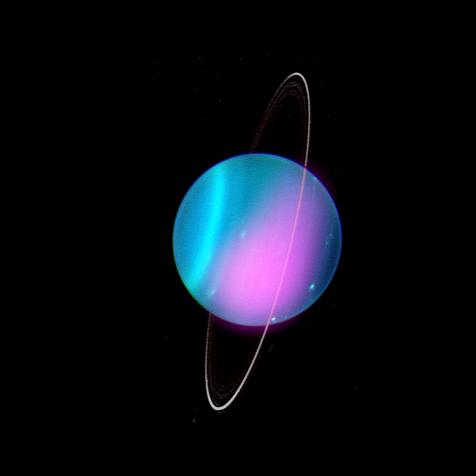
Mark Stevenson/UIG
What Comes After the Moon and Mars?

Space hotels may be in our future.
The Moon is all the rage these days, with NASA gearing up for its (much delayed) Artemis I launch and planning for several more to follow. The mission objectives for the series of Artemis missions are clear: develop a sustainable presence on the Lunar surface and pave the way to develop the expertise to go to Mars.
And then what? What’s the next great leap in humanity’s quest to explore the cosmos?
When it comes to just general scientific exploration, there are a few areas of the solar system that will be receiving some special attention in the coming decades. First off there’s Venus, our twisted sister of a planet. Long ago, Venus was a relative paradise, with oceans and a pleasant atmosphere. Something went terribly wrong a few billion years ago, and NASA has slated a couple of missions to explore what exactly is going on beneath that planet’s oppressive atmosphere.
At the other end of the solar system are the gas giants. While we’ve sent plenty of missions and probes to those distant worlds, we haven’t yet sent any focused on their moons. And what treasures those moons contain! Several of the satellites of Jupiter and Saturn, like Europa and Enceladus, are covered in thick sheets of ice, and underneath that ice sit globe-spanning oceans of liquid water. Both NASA and the ESA have missions planned in the next couple of decades to investigate those mysterious little worlds, hunting for any signs of possible life hidden deep within the ice.
As for us humans, the future is a little murkier. Mars is certainly the grand prize in the coming decades, and whatever lucky astronaut gets to land the first step will have their name inscribed in the history books. After that, if we have the drive and money, we can establish a semi-permanent presence on the red planet, rotating crews out for stints of a couple of years, keeping them working and studying in person on the Martian surface.
The other planets of our solar system are…less than hospitable. Mercury is way too close to the Sun for comfort. Venus is a suffocating hell world. The giant planets are a) far away and b) not very solid, so expect so expeditions there. That leaves humanity two options for further expansion: low-Earth orbit, and the asteroids.
Over the coming decades expect to see a proliferation of “space hotels”, habitats placed in Earth orbit, set up for visiting tourists and scientific expeditions. Think International Space Station, but cheaper and more corporate. Most of the asteroids are too far away – beyond the orbit of Mars – to establish a sustainable presence. But NASA has developed plans in the past for asteroid redirect and capture missions, which would find a good-sized rock to gently nudge into a more accessible orbit.
Naturally, hollowing out barren space rock and turning it into a habitat for humanity is pretty far-fetched given our current level of technological sophistication, but in my best estimation, it’s the next easiest thing to accomplish…after the Moon and Mars, of course.


















